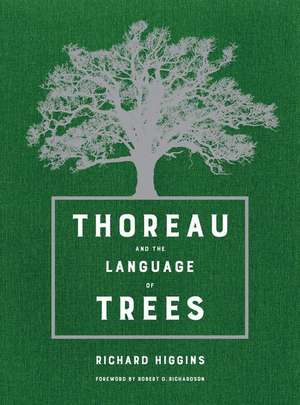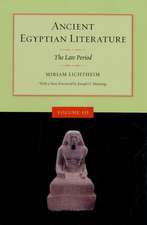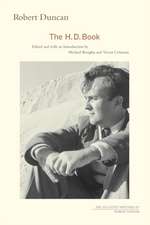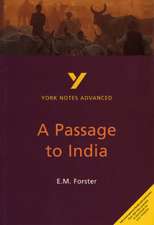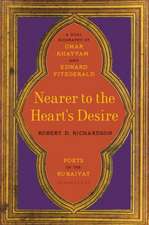Thoreau and the Language of Trees
Autor Richard Higgins, Robert D. Richardsonen Limba Engleză Hardback – 10 apr 2017
"In Thoreau's era, unbroken forest stretched from New England to the Mississippi. Trees were always his best companions. He studied them with love and care, and from that knowledge built noble lessons for us all on how to live. As a writer and photographer, Richard Higgins has made of that material a brilliant, evocative book about the precious natural heritage of North America."--William Howarth, author of The Book of Concord and Walking with Thoreau "Thoreau wrote that 'trees indeed have hearts.' In compiling this expressive compilation of Thoreau's writings on trees, Richard Higgins has indeed found the heart and the soul of the tree. We have much to learn about ourselves from the tree: from its strength as well as its pliancy; from its life stages from seedling to sapling to eventual death; and from its place in the community. Higgins helps us to see the forest for the trees."--Jeffrey S. Cramer, editor of The Portable Thoreau "Thoreau and the Language of Trees provides an unusually patient and devoted reading and interrogation of Thoreau's primary works. The world as reported here is both Thoreau's and Higgins's; a capable and objective reporter in his own right, Higgins traverses the century and a half that nominally separates him from Thoreau with an ease that enables him to convey his subject's lifelong interest in trees and their language to modern readers."--Ronald A. Bosco, Distinguished Research Professor of American Literature, University at Albany, SUNY "Thoreau and the Language of Trees elegantly fills a significant, previously unoccupied niche. The perceptive introduction and thematic chapter essays combine with quotations and sketches by Thoreau and with new and vintage photographs to form a masterfully guided tour--a tour whose visionary sylvan revelations speak to the imagination and the intellect."--Ronald Wesley Hoag, East Carolina University
Preț: 141.04 lei
Nou
Puncte Express: 212
Preț estimativ în valută:
27.00€ • 28.17$ • 22.63£
27.00€ • 28.17$ • 22.63£
Carte disponibilă
Livrare economică 20 februarie-06 martie
Preluare comenzi: 021 569.72.76
Specificații
ISBN-13: 9780520294042
ISBN-10: 0520294041
Pagini: 232
Dimensiuni: 159 x 209 x 23 mm
Greutate: 0.5 kg
Editura: University of California Press
ISBN-10: 0520294041
Pagini: 232
Dimensiuni: 159 x 209 x 23 mm
Greutate: 0.5 kg
Editura: University of California Press
Notă biografică
Richard Higgins is a former longtime staff writer for the Boston Globe, the coauthor of Portfolio Life: The New Path to Work, Purpose, and Passion after 50, and the coeditor of Taking Faith Seriously. His writing has appeared in numerous publications, including the New York Times, Atlantic Monthly, Christian Century, and Smithsonian. He lives in Concord, Massachusetts.
Descriere
Trees were central to Henry David Thoreau's creativity as a writer, his work as a naturalist, his thought, and his inner life. This book explores Thoreau's deep connections to trees: his keen perception of them, the joy they gave him, the poetry he saw in them, his philosophical view of them, and how they fed his soul.
